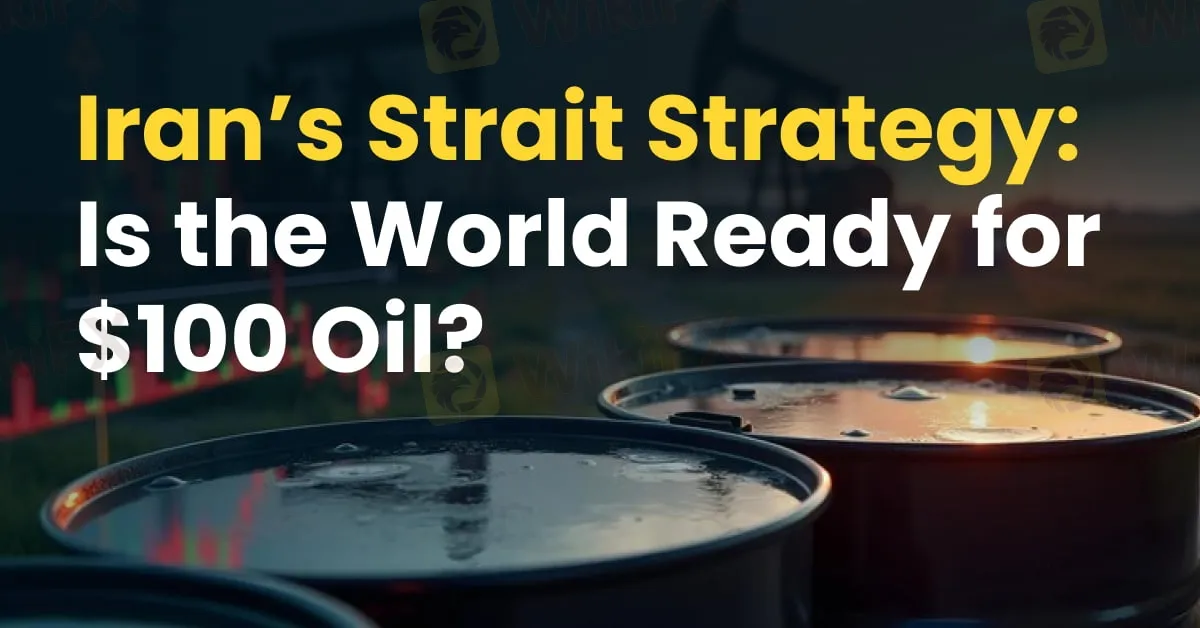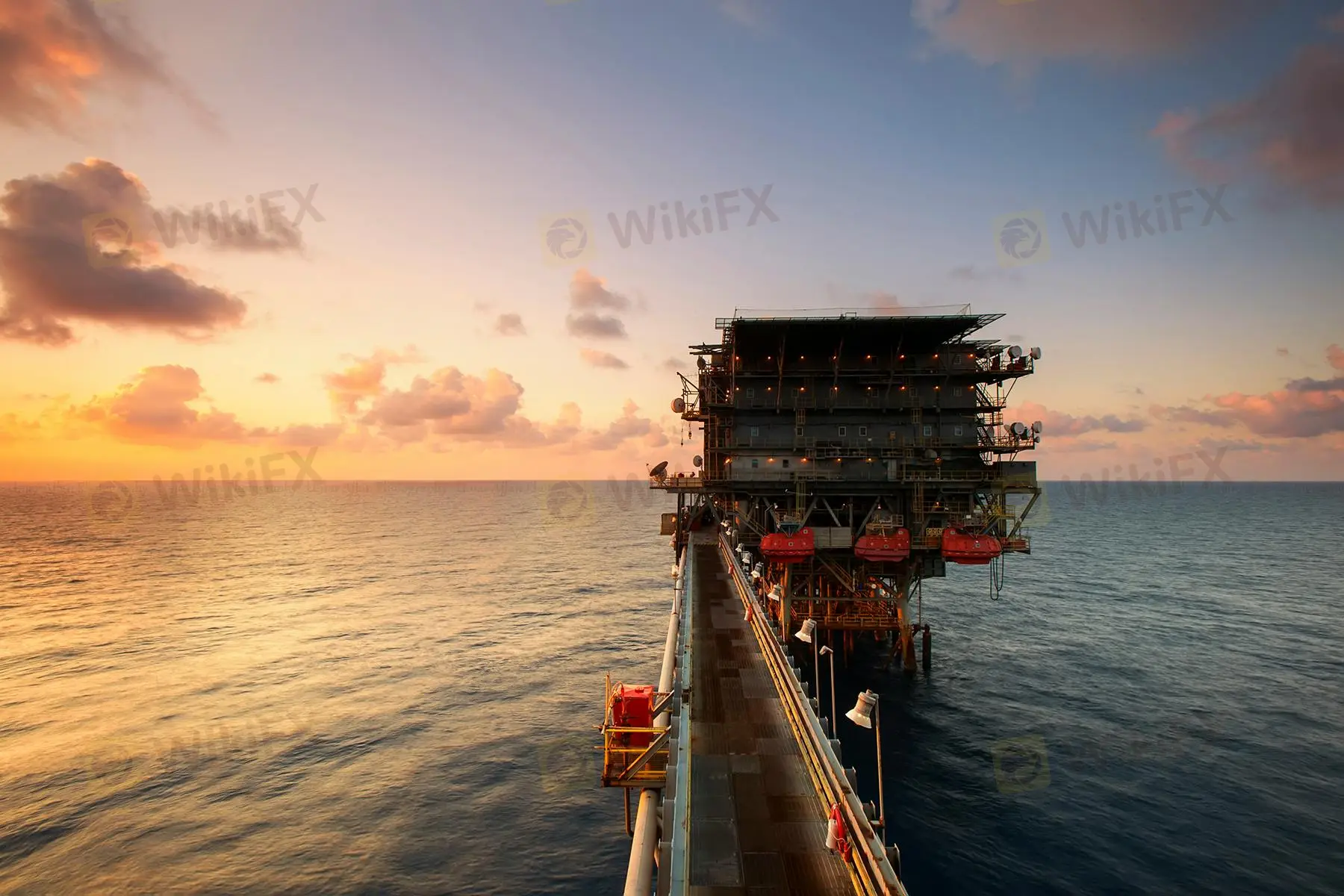简体中文
繁體中文
English
Pусский
日本語
ภาษาไทย
Tiếng Việt
Bahasa Indonesia
Español
हिन्दी
Filippiiniläinen
Français
Deutsch
Português
Türkçe
한국어
العربية
Iran’s Strait Strategy: Is the World Ready for $100 Oil?
Abstract:Tensions in the Middle East are rising quickly, and global oil markets are already feeling the pressure. Since Iran and Israel entered open conflict, oil prices have jumped from around $60 to nearly $80 per barrel. Now, with the United States joining the fight and launching strikes against Iran, the situation has become even more serious. Iran’s threat to seal off the Strait of Hormuz could ignite a global energy meltdown, spike oil prices beyond $100, and unleash economic chaos across the world.

Tensions in the Middle East are rising quickly, and global oil markets are already feeling the pressure. Since Iran and Israel entered open conflict, oil prices have jumped from around $60 to nearly $80 per barrel. Now, with the United States joining the fight and launching strikes against Iran, the situation has become even more serious. In response, Iran has threatened to shut down the Strait of Hormuz, which is one of the worlds most important oil shipping routes.
The Strait of Hormuz is a narrow waterway between Iran and Oman. It connects the Persian Gulf to the rest of the world, and about one-third of the worlds seaborne oil trade passes through it. If Iran follows through and blocks the strait, global oil supply could drop sharply. That could easily send oil prices above $100 per barrel.

Closing the strait would also hurt Iran, as oil exports are a key part of its economy. Still, Irans leaders seem ready to take that risk. Since they cannot hit the United States directly, they are targeting something just as important: its economy. Rising oil prices could bring back global inflation and force the U.S. central bank to delay interest rate cuts or even raise rates again. This would hurt stock markets, increase borrowing costs, and limit how much the U.S. government can spend.
Of course, this is not a one-sided move. Blocking the Strait of Hormuz would also damage Irans own economy, especially during wartime when it needs money the most. But Iran may see the short-term pain as worth it if it can create trouble for its enemies.
Other countries in the region would also suffer. Saudi Arabia, Iraq, and Kuwait send most of their oil through the Strait of Hormuz. The United Arab Emirates has a small pipeline that can help, but it‘s not enough. Qatar, the world’s biggest exporter of liquefied natural gas, also relies heavily on the strait. If it‘s closed, these countries may watch oil prices rise, but won’t be able to sell their oil.
On the other hand, Russia could benefit. Still under pressure from the war in Ukraine, Russia has been selling oil through pipelines and alternative routes. If prices go up, Russia could earn more money and ease some of its financial problems.
In the end, this conflict may not have a clear winner. Iran likely cannot win in a direct fight against the combined forces of the U.S. and Israel. But that may not be its goal. Instead, Iran may be trying to drag out the conflict, shake financial markets, and raise costs for its opponents. The longer it lasts, the more pressure it puts on Israels budget and the U.S. economy.
This is a risky game with high stakes. And once again, it shows how a small stretch of water can affect the entire world economy.

Disclaimer:
The views in this article only represent the author's personal views, and do not constitute investment advice on this platform. This platform does not guarantee the accuracy, completeness and timeliness of the information in the article, and will not be liable for any loss caused by the use of or reliance on the information in the article.
Read more

How to Set Up MetaTrader 4 & 5! Like a Pro
MetaTrader 4 and 5 are well-known trading platforms commonly used in the trading community. But Why are these platforms widely popular among traders and investors?

Are You Facing Withdrawal Problems with FVP Trade? You're Not Alone!
A lot of people invested in FVP Trade, a foreign exchange broker believed to be operating in the United Kingdom, hoping to make good returns. However, they incurred losses as the scam broker trapped their hard-earned money using illegal routes. Check out this story.

Exposed: Telegram Forex Groups Are Scamming Millions! Not Safe!
If you're a forex trader or investor, chances are you’re already part of some Telegram forex groups. But are you aware of the darker side of these communities?

5 Best Forex Brokers for Beginners in 2025
If you’ve decided to begin your journey in the dynamic forex market, or you're about to start, you’ll need a reliable forex broker to make your trading experience smoother. As a beginner, you should choose a licensed broker that offers a demo account, minimum spreads, a variety of trading platforms, robust customer support, and educational tools. Here are 5 brokers, You may Choose. Check out the list below.
WikiFX Broker
Latest News
Consob Blocks 7 Fraudulent Investment Websites Amid Ongoing Crackdown
MyFundedFutures Tightens Compliance Measures Following Regulatory Pressure
Investors Beware! The Pound May Face a Downturn in the Second Half of the Year
Super Micro shares fall on planned $2 billion convertible debt offering
Stock futures rise after Trump says there is a ceasefire timeline for Iran-Israel conflict: Live updates
Asia-Pacific markets set to rise after Trump says Israel and Iran agree to ceasefire
CNBC Daily Open: The strange times of missiles-led peace'
FXTM: A Closer Look at Its Licences
Tiger Brokers Expands Hong Kong Operations to Tap Offshore Chinese Wealth
Stock futures rise after Trump says Iran-Israel ceasefire is in effect: Live updates
Currency Calculator


